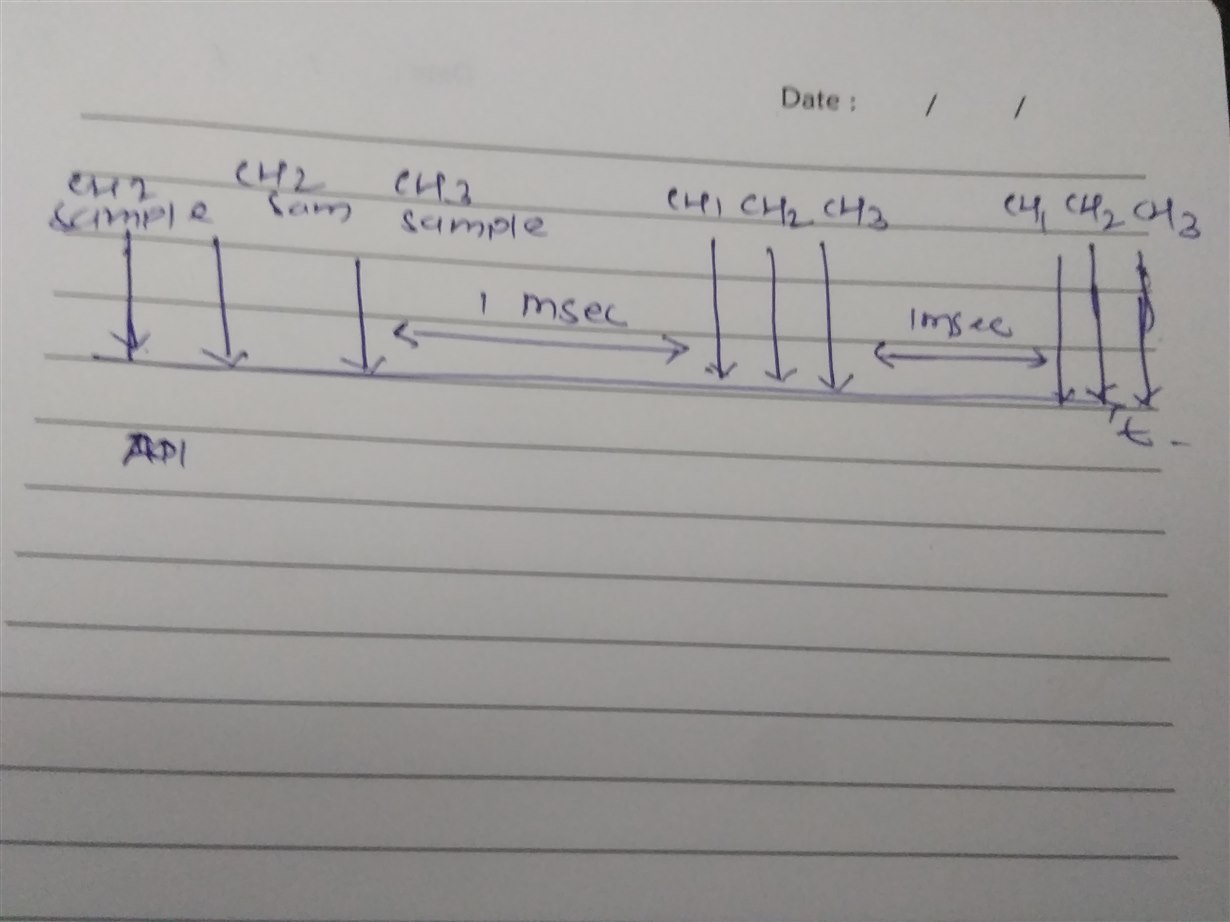Hi,
i am using CC1350 launchpad. i want to read the multiple analog input from the adc and convert it into the voltage.for now i want to use 3 input for my application. for the reference i am using adc continous code.
here in my code i want to read the 3 analog input at a time. i set the sampling frequency 1khz .and every 1ms it gets into the interrupt. but i don't get the 3 raw values at a time.
so what should i have do for getting the 3 analog values at time. if you know then please tell me. in the example code. their is only two mode . contineous mode and one shot mode. how can we use this mode.
please guide me


